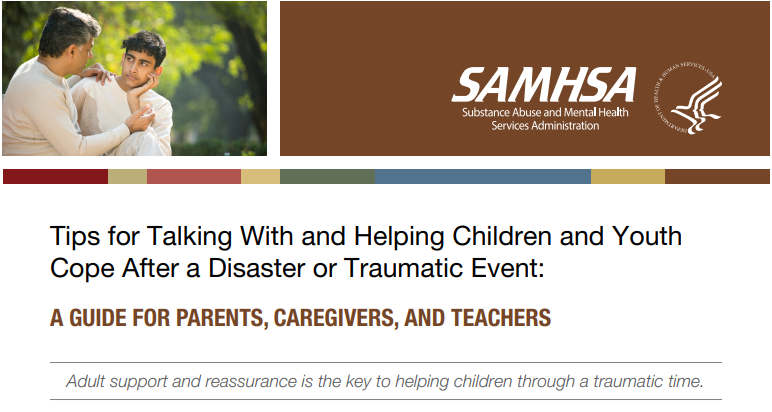Order your free hard copy by adding to cart or you can download an electronic copy for free using the link below
Tips for Talking With and Helping Children and Youth Cope After a Disaster or Traumatic Event: A GUIDE FOR PARENTS, CAREGIVERS, AND TEACHERS
Children and youth can face emotional strains after a traumatic event such as a car crash or violence.1 Disasters also may leave them with long-lasting harmful effects.2 When children experience a trauma, watch it on TV, or overhear others discussing it, they can feel scared, confused, or anxious. Young people react to trauma differently than adults. Some may react right away; others may show signs that they are having a difficult time much later. As such, adults do not always know when a child needs help coping. This tip sheet will help parents, caregivers, and teachers learn some common reactions, respond in a helpful way, and know when to seek support.
This project is funded under a grant contract with the state of
Tennessee, Department of Mental Health and Substance Abuse Services

